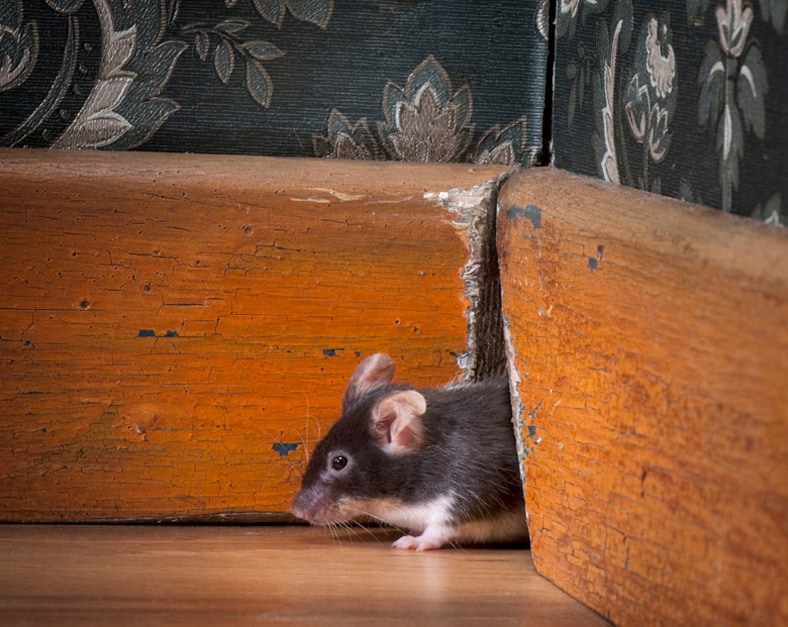Imagine baking fresh cookies in your kitchen this holiday season and turning around to see a mouse swiping one from the cooling rack. No one wants to deal with mice removal in the winter or any other season. Unfortunately, mice infestations increase in the colder months as exterior conditions make survival a challenge. Preventing winter problems is about understanding why mice are drawn to your property and knowing how to keep them away.
Why Are Mice Attracted To Your Home?
Houses and other structures attract mice because they provide an increased opportunity for survival. Every living thing wants to survive, and the winter is a stark time for wildlife, food sources run dry, and predators become more aggressive. Experts explain mice seek out human dwellings for three reasons.
1. Food and Water
All living things need access to food and water; mice are no different. Your house offers plenty of each, especially for smaller critters. Mice can live on a few crumbs and drops of water daily; they don’t need much. If you leave dishes in the sink or trash in the bin overnight, a mouse will find it and make a feast.
2. Shelter and Security
During the winter, the most important thing for any animal is shelter. For mice, it is shelter and security from larger, hungry predators. A mouse can squeeze through the smallest of openings, which means they might have access to a house that is impossible for other predatory animals. Your home also provides protection from blizzards, ice storms, and other dangerous natural occurrences.
3. Warmth
Finally, your house provides a stable temperature. Mice do not hibernate, remaining active all winter. The warmth of your home makes the season easier on the animal. They can depend on a specific temperature and not have to worry about freezing to death at night.
How Can You Keep Mice Out of Your Kitchen?
Keeping mice out of your home is about eliminating access to the needs of the animal, for instance, cutting off food and water sources. You can do several things to prevent mice from invading your house.
1. Store Food Correctly
You must store food correctly, including pet food. All items should be in cupboards or sealed containers. Mice have an incredible sense of smell. Leaving pet food in a bag or cereal in open cardboard boxes will not divert the animal. A mouse’s sharp teeth can make quick work of cardboard and bags.
2. Maintain a Clean Space
Crumbs are enough to provide a complete diet for a mouse. You must keep floors and counters clean, swept, and vacuumed. Also, if you have clutter, organize it and clear it out. Mice love to find places to hide, and clutter provides prime real estate.
3. Seal Entry Points
Mice can squeeze through an opening the width of a pen. You must seal all potential openings and crack around the interior and exterior of your home. However, if it is late fall or early winter, you should contact a wildlife removal service to ensure no animals currently live in your house.
Why Is Prevention Best in the Fall?
According to wildlife control in Niagara, the fall is the best time to invest in prevention techniques. Mice will migrate to warmer and plentiful spaces from mid to late fall. A professional animal control service can help protect your home against infiltration.
Are you ready to protect your home against wildlife? Contact Skedaddle Humane Wildlife Control to discuss the company’s prevention services. You can schedule a home visit, at which time a team of wildlife technicians will assess your property and offer suggestions for preventing or correcting wildlife issues.



